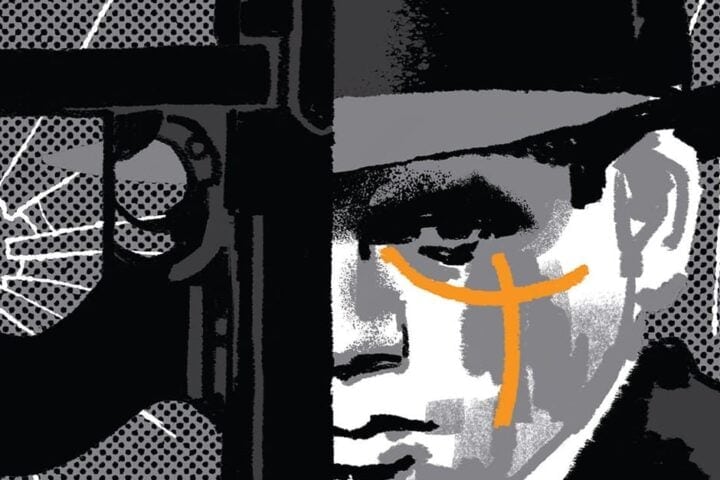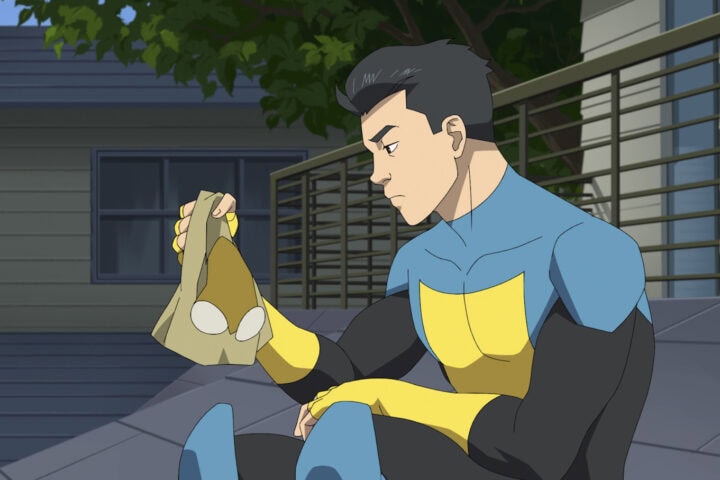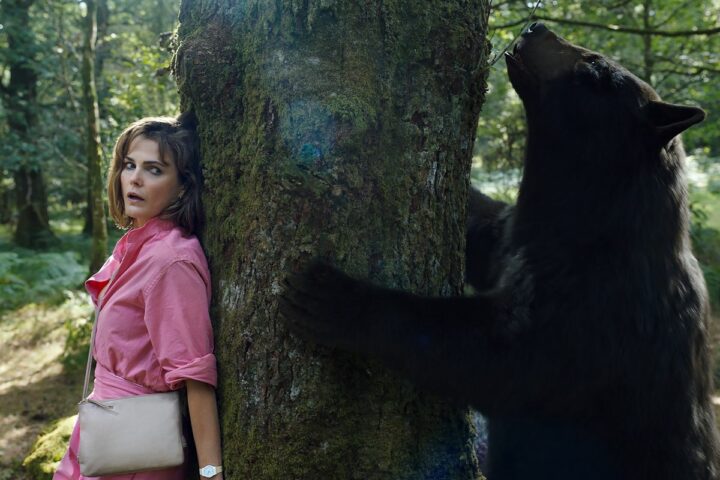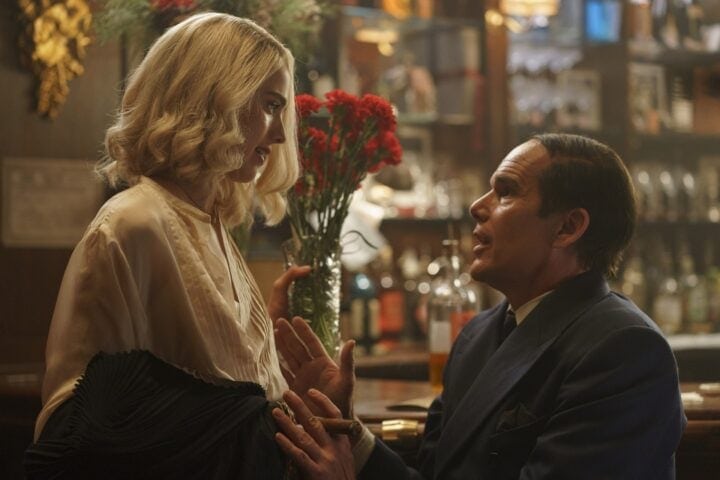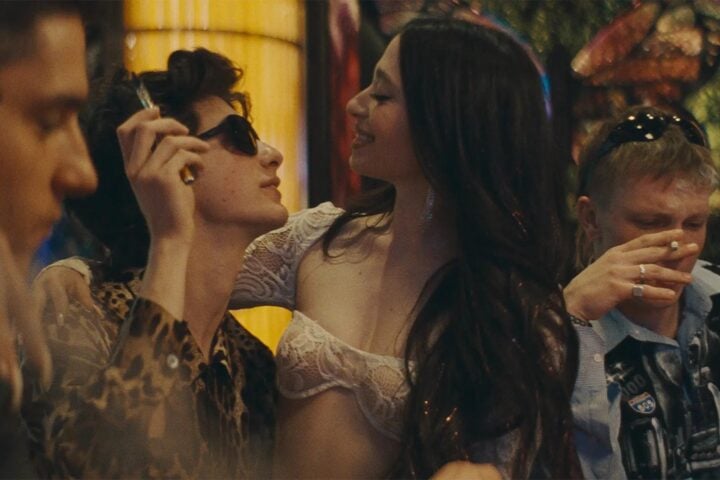Can you blame Oz Perkins for feeling cursed? The eldest son of Hollywood icon Anthony Perkins, the actor turned director lost his famously closeted father at an early age to AIDS. Less than a decade later, his mother, actress and model Berry Berenson, perished aboard American Airlines Flight 11 during the September 11, 2001 terrorist attacks.
Well acquainted with death and its cruelest deprivations, Perkins’s work is in conversation with itself on the nature of trauma as inheritance, from his boarding school-set debut feature, The Blackcoat’s Daughter, to Longlegs, in which Nicolas Cage’s serial killer functions as an agent of the chaos wrought by parental malfeasance. But with The Monkey, it feels as if Perkins is finally moving on by throwing his hands up in a riot of entrails and arterial spray.
In 1999, twin brothers Hal and Bill (Christian Convery) discover a toy monkey among their absent father’s belongings. The two initially think nothing of sticking the key into the toy’s back and giving it a turn, but after a string of freak accidents claim the lives of people around them, the two decide to bury the monkey deep in a well in the hopes of averting more violence. Twenty-five years later, Hal (Theo James), now a derelict father to his own teenage son, Petey (Colin O’Brien), is swept up again in a rash of violent fatalities across his Maine town when he receives a call from his estranged brother with a plan to put the monkey to rest for good.
Adapted from the 1980 Stephen King short story of the same name, The Monkey fits so snugly next to Perkins’s previous efforts that it could be mistaken for an original work. As if taking the baton from Longlegs’s malevolent dolls with steel balls for brains, the titular toy is a dynamic and impressively realized curio with a maniacal grin and fearsome spinning drumsticks, and it’s made all the more intriguing for the lack of lore surrounding it. Indeed, Perkins avoids the mistake of his last film by refusing to explain the function of the evil that the toy represents.
The mayhem that the monkey doles out makes The Monkey closer in spirit to Evil Dead than Final Destination, as the film is less a Rube Goldberg contraption of overdesigned chaos than it is a Looney Tunes-esque spectacle of quick and dirty violence that hits like a punchline. But The Monkey’s impudent humor extends beyond its exploding bodies to the way it pokes holes in a now overfamiliar narrative about overcoming trauma by draping a darkly amusing sense of anticlimax over it. Horrible things just happen here, and the more his characters try to make sense of the senseless, the more ridiculous Perkins makes their efforts look.
These characters are arch and mannered by design. Rohan Campbell plays a dingus par excellence in a horrid Joey Ramone wig, and James is excellent in a dual role that’s a jumping-off point for Perkins to not only explore his relationship with his own brother, musician Elvis Perkins, but to reflect on the different misshapen parts of himself as an overgrown kid abandoned to a world in which fate has always seemed outright hostile toward him.
Missing fathers feature prominently in The Monkey, and there’s a sense that everyone is doing the dumbest things possible in an attempt to get their arms around something that’s ungraspable. Perkins has contributed to the horror-as-trauma-metaphor boom of the last decade, and The Monkey feels like his 95-minute joke not just on an audience primed for more introspective portraits of grief, but also on himself for making movies in an attempt to try to exorcise his demons and finding that, despite his every effort, they always come back.
Perkins’s horror films have been an attempt to reconcile his memories of a father he never really knew with the man’s place within the pop-cultural imagination, understand the secrets his mother kept, and unpack a legacy of trauma and random violence that has colored his life. But with The Monkey he seems to come to terms with the fact that there’s no coming to terms with these things. Trauma is personal, but we take it personally at our peril. Early on, Lois (Tatiana Maslany), Hal and Bill’s deliciously nihilistic mother, says, “Everything happens for a reason…or nothing does.” It’s up to someone to choose which belief drives them less crazy. Perkins may never stop picking at his scabs, but at least he’s learning to laugh while he’s at it.
Since 2001, we've brought you uncompromising, candid takes on the world of film, music, television, video games, theater, and more. Independently owned and operated publications like Slant have been hit hard in recent years, but we’re committed to keeping our content free and accessible—meaning no paywalls or fees.
If you like what we do, please consider subscribing to our Patreon or making a donation.


